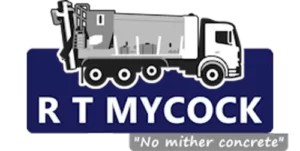Floor screeding is an exciting part of your renovation project and is a stage where you are well on your way to seeing the finished job. Floor screeds are used to level floors and a base for your flooring. They are also vital when it comes to underfloor heating. Choosing the right floor screed is an important aspect of your project. Here we will take a look at floor screed and guide you through how to choose the right screed for your project.
Why use floor screed?
The main reason for using floor screed in the home is that they will level and uneven floor structures. This is useful for floors that have drops or camber which will in turn mean your new flooring would be uneven. They are also used for covering underfloor heating pipes as they can radiate the warmth.
Types of screed –
The two main types of screed are sand and cement screed and pumped anhydrite floor screed.
The sand and cement screed is a strong mix that is a quite dry mix. It is quite time consuming as it the sand and cement needs to be manually added to a mixer.
The ready mixed screed will last all day as it comes with retardants that delay the setting process so poured liquid screed is usually the go to for most projects in this day and age due to its ease of use and remarkable finish.
Benefits of sand/cement screed –
- Fairly cheap to produce
- Doesn’t need specialist labour
- Minimal preparation work is required to the flooring site
Disadvantages of sand/cement floor screed –
- Can result in patchy finish and uneven
- Prone to cracking
- Not as effective for underfloor heating
Benefits of Anhydrite screed –
- The labour costs are reduced using pumped screed is up to 20 times quicker than sand/cement screed.
- Costs reduced as the pumped screed only needs to be layed at thin depths compared to traditional screed.
- Pumped screed is self levelling and self curing so this means the overall finish is often to a much higher standard and quality.
- Anhydrite is much less likely to shrink
- Perfect for underfloor heating helping with the heat transfer.
Disadvantages of pumped screed –
- Preparation time is quite high
- Can seem more expensive however labour costs are reduced
Overall pumped screed wins our vote for your screeding needs to transform your floors. If you would like more information or have a screed need contact our experts today at RT MyCock and we will happily discuss your needs.
